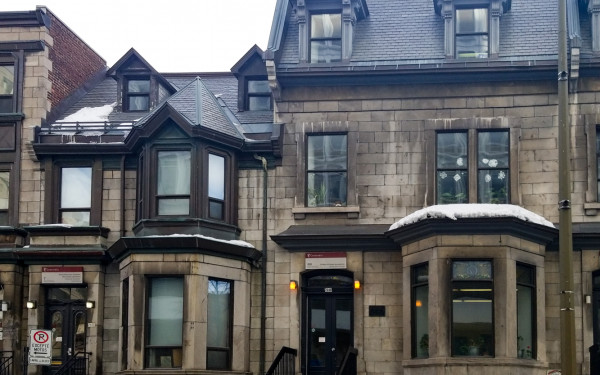Dissecting Quebec’s Far-Right
Series of Events Raises Awareness on Fascism
Two far-right groups are coordinating a rally at the National Assembly on Nov. 25. La Meute is Quebec’s largest group at an estimated 3,000 members, and Storm Alliance is against “illegal immigration” — which, legally speaking, does not exist.
Since Nov. 2, a group of anti-racist activists have been holding workshops at Concordia and McGill.
Anas Bouslikhane is one of the instructors of The Anti-Racist Workshop Tour, an initiative to educate students on the rise of xenophobia, racism and Islamophobia. The tour lasts from Nov. 2 to Nov. 22.
On Wednesday, Bouslikhane led a workshop on the mapping of the far-right in Quebec. There, he expressed concern about this particular far-right demonstration in November. He worries the collaboration of these two groups could amount to a larger problem.
The workshop outlined the history of far-right movements in Quebec, and summarized each demographic make-up, platform, and mandate group-by-group.
“I think the potential rise of it is something to address quite quickly,” Bouslikhane said.
This comes just 10 days before anti-fascist groups are set to hold a counter-protest in Quebec City.
“That’s why it is important to actually denounce them publicly, and explicitly and be there in large numbers,” Bouslikhane explained.
When discussing the rise of fascism in Quebec, Bouslikhane referenced 1930s Europe. Nationalist movements that led to the Holocaust are beginning to happen again today, he explained. About 60,000 Polish nationalists marched Warsaw this Nov. 11, Poland’s independence day, many of them carrying banners with white-supremacist slogans.
Observing how rapidly fascist movements can grow, Bouslikhane said, “It just kind of comes out of the woodwork when silence and complacency disregards it.”
There are few far-right groups that openly identify as racist, he said. Often times they will advocate for “free speech,” which translates to the desire to be able to freely and openly say racist statements and hate-speech without suffering any consequences.
Bouslikhane said that these groups should be isolated in order to disrupt their message of intolerance.
“The ideology that is required for them to grow is already in the soil,” he said. “They just need to find that right moment and come out of the ground.”
And the “right moment” appears to be when there is an “overall sentiment of powerlessness.” When people are given reason to distrust the powers that be and use marginalized people as scapegoats.
“The ideology that is required for them to grow is already in the soil. They just need to find that right moment and come out of the ground.” — Anas Bouslikhane
For example, in the case of La Meute, two former soldiers established the group in fall 2015 when Syrian refugees started arriving in Canada.
One of the founders, Eric Venne, told CBC Montreal, “I don’t have the desire to live under Shariah. I don’t want to live under a totalitarian Islamic regime.”
La Meute does not trust Quebec’s political parties, but aligns itself with French far-right leader Marine Le Pen. Fear and misunderstanding of Muslims combined with distrust in government bodies gave birth to radicalization.
Similar stories such as the election of Donald Trump, the Liberal Party of Quebec passing Bill 62, and the Quebec City Mosque shootings are symptoms of more rooted problems in society.
With this in mind, Bouslikhane said, “I think it’s time for everybody to jump on board on the same page that these things are too problematic to be ignored.”
To learn more about the far-right Bouslikhane recommends Antifa: The Anti-Fascist Handbook by Mark Bray for the North American context or the website http://montreal-antifasciste.info/en/ for Montrealers.

_900_600_90.jpg)



_600_375_90_s_c1.jpg)
1_600_375_90_s_c1.jpg)
_600_375_90_s_c1.jpg)